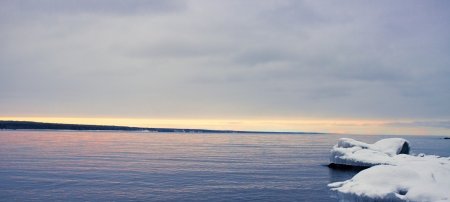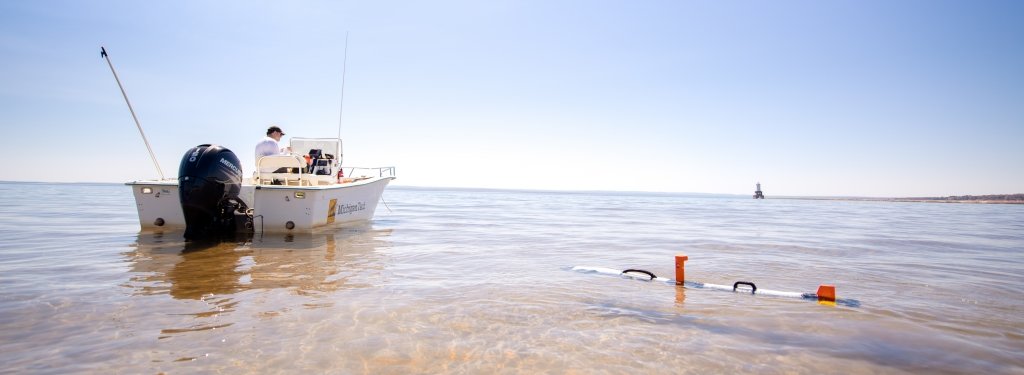Michigan Tech Scientist Wins Google Earth Competition

Tyler Erickson, a research scientist at the Michigan Tech Research Institute in Ann Arbor, has been named one of five scientists worldwide who created winning entries in a Google Earth Education competition. The contest sought innovative ways to use the KML computer programming language in research.
MTRI is a research institute that is part of Michigan Technological University, a public technological university in Houghton, on the Upper Peninsula of Michigan. Erickson is also an adjunct assistant professor in Michigan Tech's Department of Civil and Environmental Engineering.
KML is a programming language for describing geospatial objects and their locations relative to the earth's surface. Interactive three-dimensional earth browser applications such as Google Earth can be used to display KML data in intuitive and engaging ways.
"Dr. Erickson's entry was selected because it is a novel and compelling representation of science using Google Earth and the KML language," said Ryan Falor of the Google Earth Education Team. "As KML continues to evolve, we hope to enable more work like his by providing teaching resources, tutorials and examples to guide new developers and students."
Using KML, Erickson formatted several large carbon-cycle datasets created by his collaborators at the University of Michigan and the National Oceanic and Atmospheric Administration (NOAA).
"Researchers in Anna Michalak's group at the University of Michigan are developing methods that help determine where plants and oceans are taking up and releasing carbon, so that carbon-cycle scientists can better predict how these important carbon sinks will change in the future," Erickson explained. "To understand the carbon cycle, scientists must work with large volumes of data that vary in space and time. KML is a descriptive language for geospatial data, so that the data can be explored using Google Earth, a user-friendly interface for viewing spatial and temporal data."
Erickson's project can help scientists, teachers, students and the general public make sense of the wealth of data collected on atmospheric concentrations of carbon dioxide and other factors, such as wind and weather patterns, all of which contribute to our understanding of climate change.
The five award-winning scientists represent three US universities, one in the United Kingdom and a private nonprofit Norwegian geospatial research web site. Two university students--one from the University of Michigan and one from the University of Alberta, Canada--won in the student category.
For more information about Google Earth's KML in Research winners, see http://www.google.com/educators/kml_contest.html and http://google-latlong.blogspot.com/2009/03/and-award-goes-to.html.
Michigan Technological University is a leading public research university, conducting research, developing new technologies and preparing students to create the future for a prosperous and sustainable world. Michigan Tech offers more than 120 undergraduate and graduate degree programs in engineering, forestry and environmental sciences, computing, technology, business and economics, natural and physical sciences, arts, humanities and social sciences.
Michigan Technological University is a public research university founded in 1885 in Houghton, Michigan, and is home to more than 7,000 students from 55 countries around the world. Consistently ranked among the best universities in the country for return on investment, Michigan’s flagship technological university offers more than 120 undergraduate and graduate degree programs in science and technology, engineering, computing, forestry, business and economics, health professions, humanities, mathematics, social sciences, and the arts. The rural campus is situated just miles from Lake Superior in Michigan's Upper Peninsula, offering year-round opportunities for outdoor adventure.




Comments